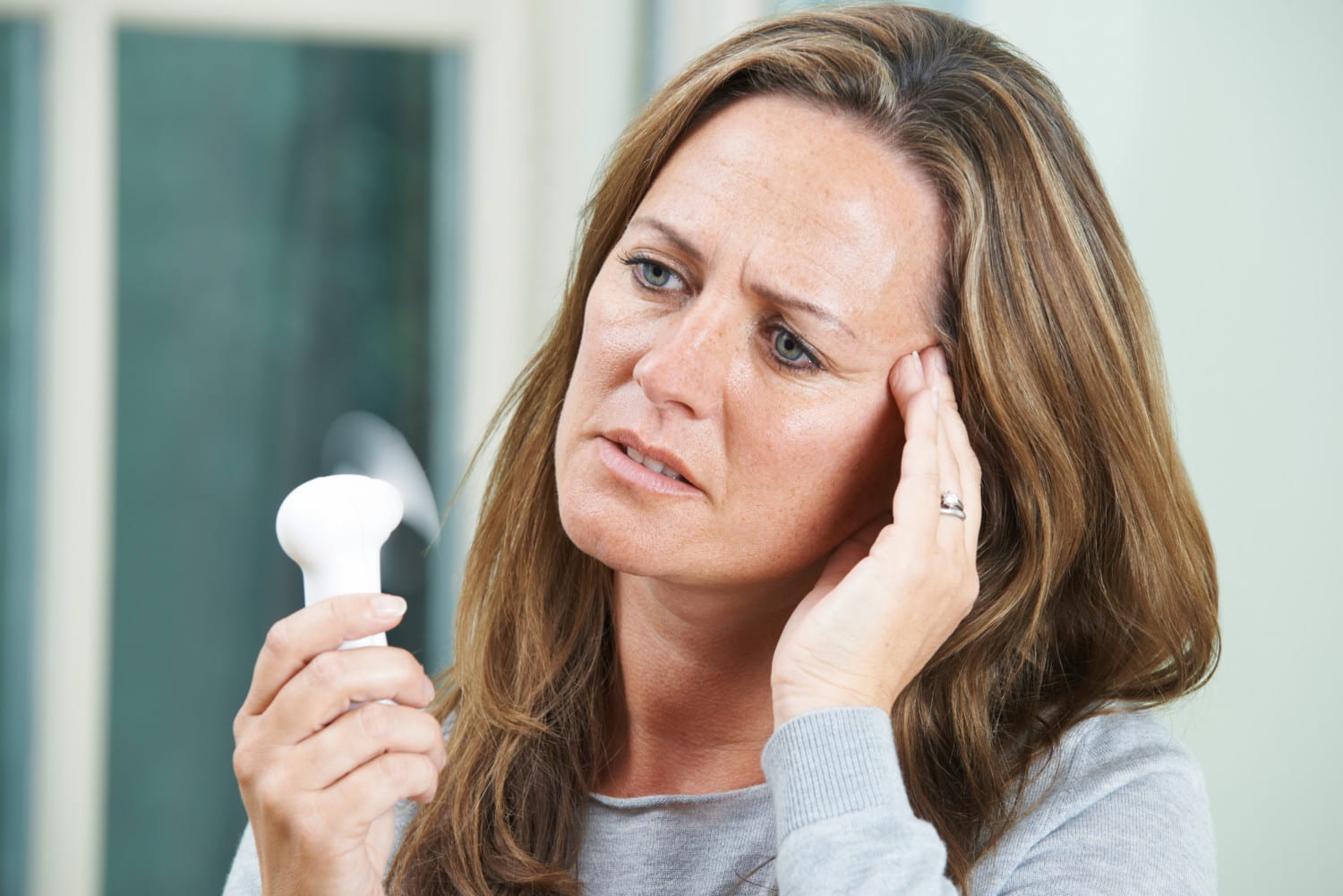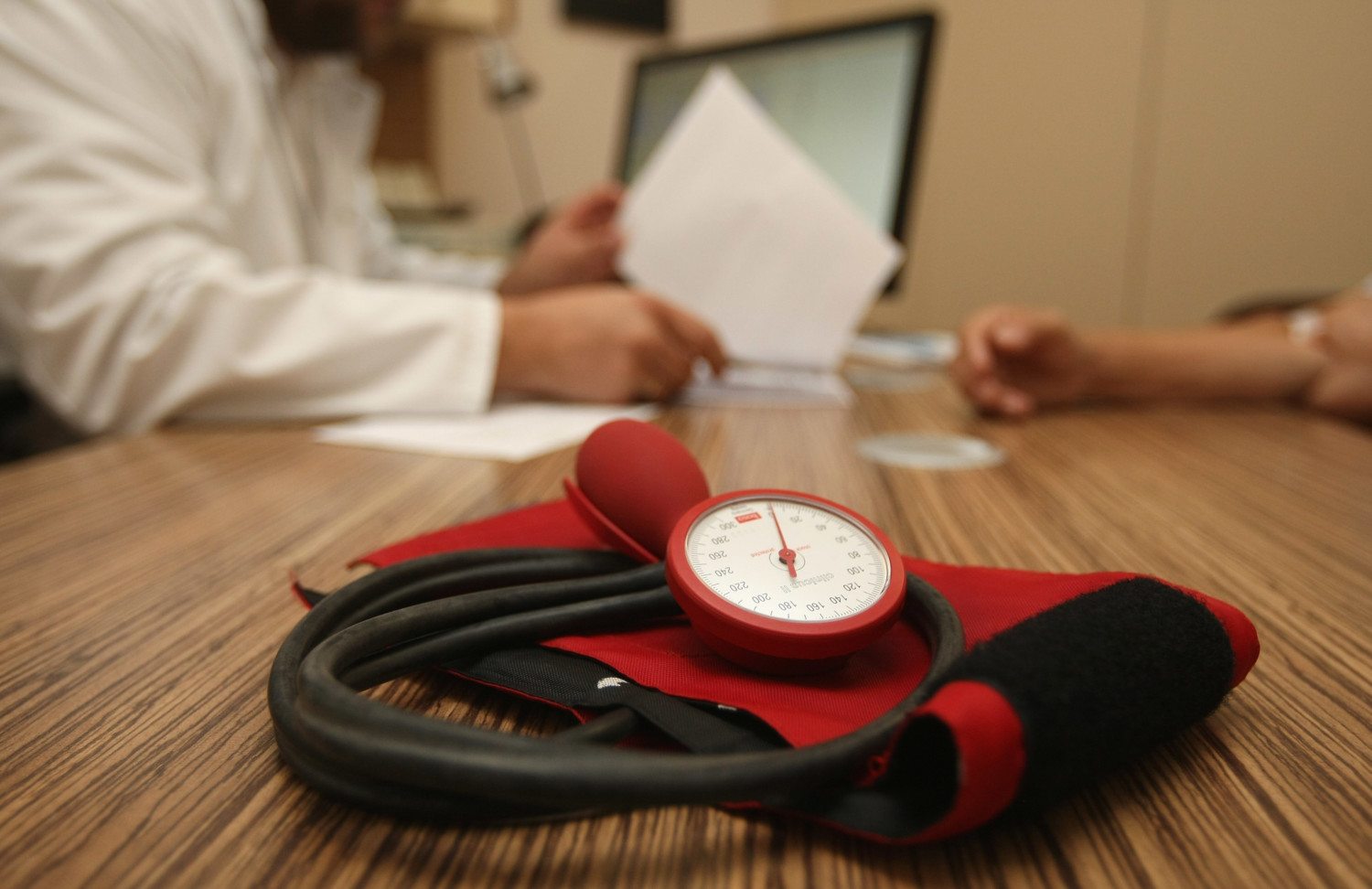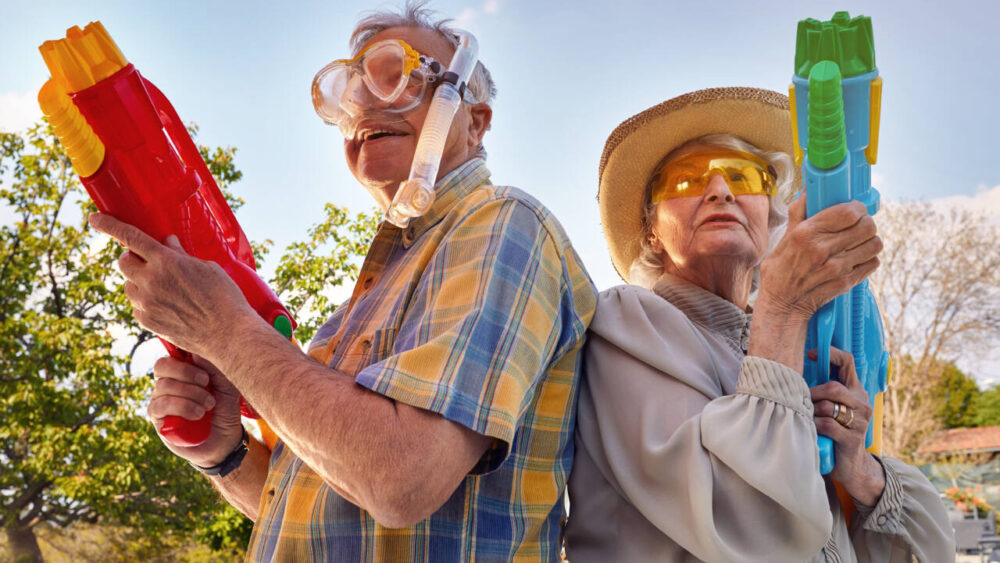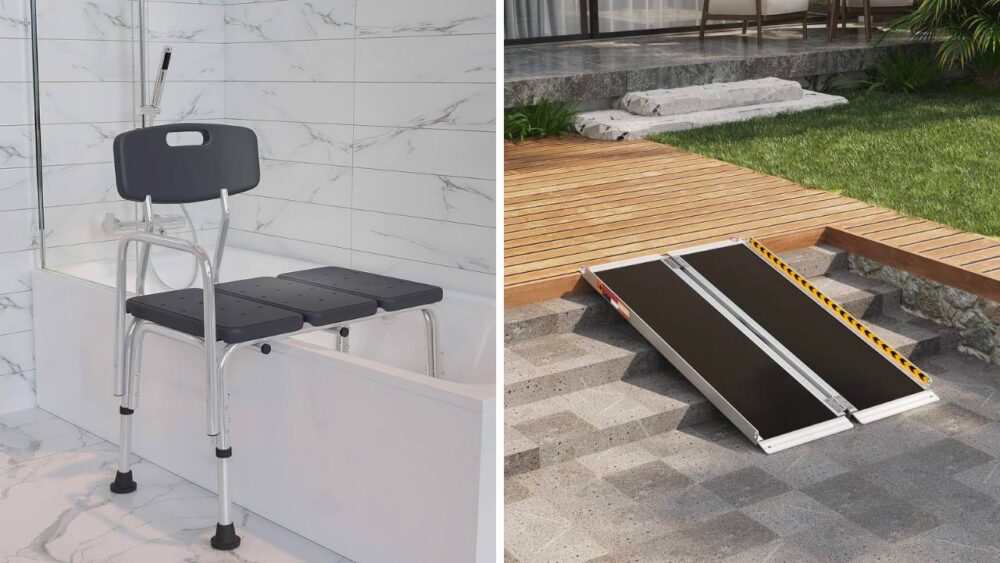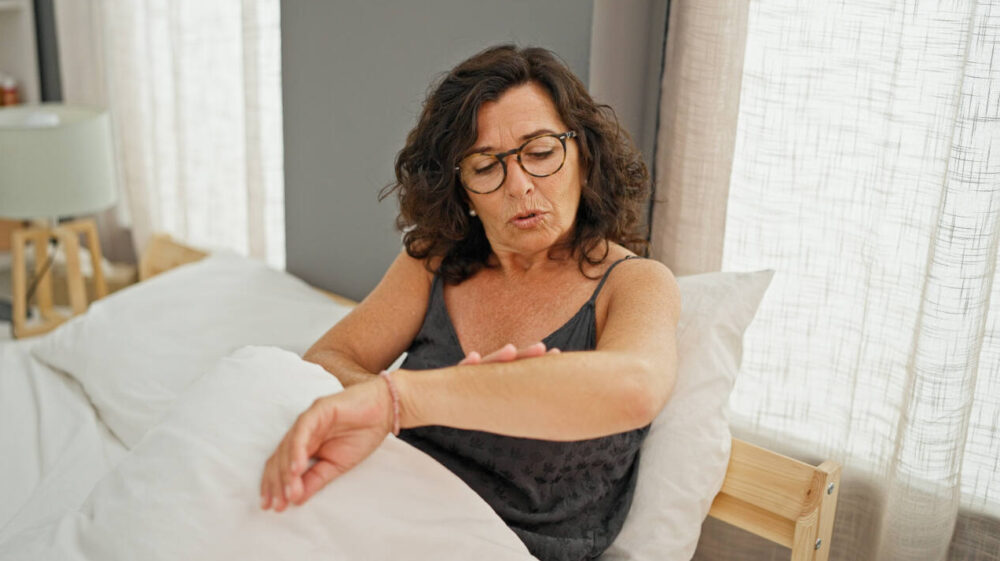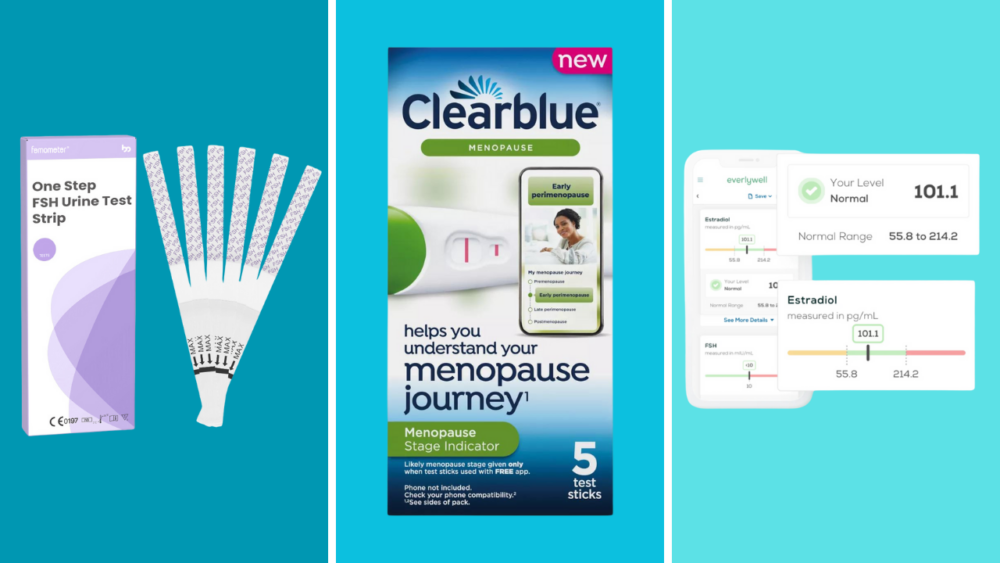How you can tell you’re going through menopause

While menopause can happen in your 40s, the average age at which women stop getting their periods in the United States is 51. Still, some women may notice changes to their period as early as their late 30s.
These shifts occur as women’s ovaries begin making less estrogen and progesterone, the hormones that regulate menstruation. How these period changes manifest, however, can vary among women.
“Sometimes, periods can be shorter, longer, heavier or lighter — and often become irregular,” explains Erica Contreras, M.D., an ob-gyn at UM Community Medical Group at University of Maryland Charles Regional Medical Center. “So instead of monthly cycles, they are every two months, then three months and they space out to where they don’t return.”
Here, we take a look at how women’s periods change throughout their 40s, sharing insight from experts on some of the most common symptoms of menopause, as well as the overlooked ones.
Symptoms Of Menopause
Simply put, menopause occurs when a woman’s ovaries stop producing eggs and she no longer has periods. But no two menopausal experiences are exactly the same. Dr. Anna Cabeca, triple board-certified in gynecology and obstetrics, integrative medicine and anti-aging and regenerative medicine, explains that there’s no “one way” to go through menopause. Some women hardly experience any symptoms at all, while others may experience a combination of several bothersome symptoms.
MORE: Why is skin itchy during menopause? And what to do about it
In addition to irregular periods, some of the most common symptoms of menopause and perimenopause (which occurs three to five years prior to menopause) include the following:
- Hot flashes
- Sleep disturbances
- Weight gain
- Decreased libido
- Vaginal dryness
- Incontinence
- Fatigue and overwhelm
- Brain fog
- Hormone imbalance
According to Cabeca, it’s also natural for women to experience a small amount of bone loss once they hit 35. The first four to eight years after menopause, however, can cause rapid bone loss, increasing the risk of osteoporosis and bone fractures. Hips, wrists and spines tend to be the most often affected, says Cabeca.
Jennifer Gattuso, D.O., a physician with University of Maryland Upper Chesapeake Women’s Care in Bel Air, Maryland, shares some lesser-known menopause symptoms, including thinning hair and skin dryness.
Some other menopause symptoms, adds Contreras, include insomnia and anxiety.
Decreased estrogen during menopause can also affect women’s blood cholesterol levels, oftentimes increasing the low-density lipoprotein (LDL) cholesterol (AKA the “bad cholesterol”) and decreasing the good cholesterol levels. This can increase women’s risk for heart disease.
MORE: Should you take an at-home menopause test? Here’s what doctors have to say
Tips For Handling Menopause Symptoms
If you’re unsure whether or not you’re going through menopause, you can ask your doctor for a simple blood test, says Gattuso.
Either way, she says that hormone replacement therapy, herbal supplements, exercise and proper nutrition can all help ease some of the most unpleasant menopause symptoms. Hormone therapy, in particular, can be helpful for women experiencing hot flashes, though it’s recommended that women have a conversation with their doctor about whether it’s the right option for them.
Women may also want to avoid spicy foods, alcohol and caffeine, as they can trigger hot flashes. Using a fan, drinking cold water and taking slow, deep breaths can also help ease these symptoms.
For vaginal dryness, an over-the-counter vaginal moisturizer can help keep the vagina lubricated and make sex more comfortable. Water-based vaginal lubricants before or during sex can also help.
MORE: The best cooling pajamas for hot flashes
Can You Delay Menopause?
Researchers behind a new study — which is the first of its kind — have found that a diet rich in fish and legumes may actually help delay the onset of menopause. Meanwhile, a diet that’s high in refined carbs like pasta could cause women to go through menopause earlier.
Each additional daily portion of processed carbs, specifically pasta and rice, was linked to women reaching menopause 1.5 years earlier. On the flip side, each additional portion of fish and legumes (think: beans and peas) were associated with a delay of more than three years. Researchers also concluded that higher intakes of vitamin B6 and zinc were associated with later menopause.
If you think you’re going through menopause, it’s a good idea to talk with your ob-gyn about how best to manage the symptoms.


